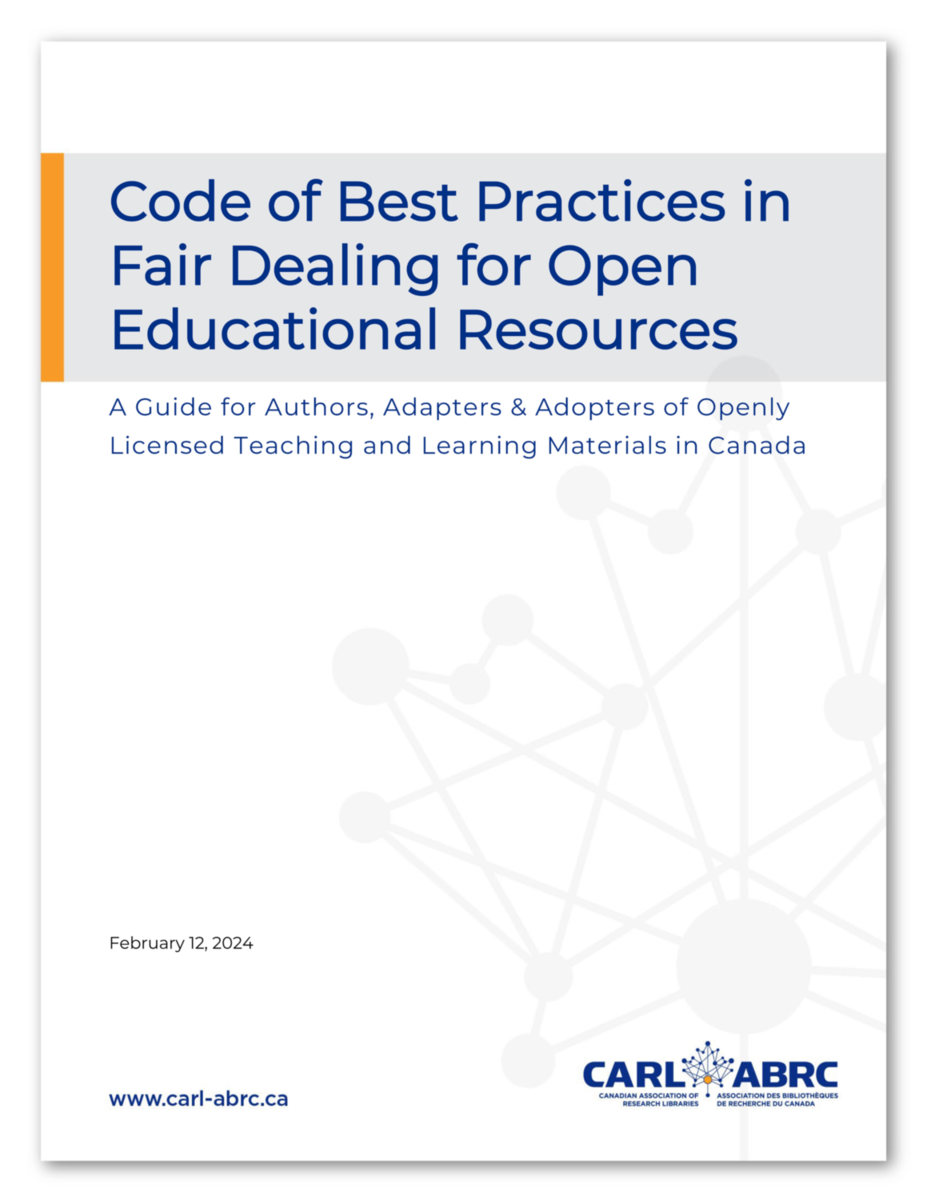Book Title: Code of Best Practices in Fair Dealing for Open Educational Resources

Book Description: The Code of Best Practices in Fair Dealing for Open Educational Resources explores the legal and practical application of fair dealing in the context of Open Educational Resource (OER) creation in Canada. The Canadian Code was adapted from its U.S. counterpart, the Code of Best Practices in Fair Use for Open Educational Resources and benefited from both the robust consultation process undertaken by the U.S. Code authors, their framework and practical examples. The Canadian Code draws extensively on Appendix Three of the U.S. Code, written by Canadian legal scholar, Dr. Carys Craig. While the Code is not legal advice it provides a legally defensible and judicious model for the application of the fair dealing exception when incorporating third-party copyrighted content into OER. The Code details the relevant Canadian legislative and legal context and supplies relevant practical examples.
Contents
Book Information
Book Description
The Code of Best Practices in Fair Dealing for Open Educational Resources explores the legal and practical application of fair dealing in the context of Open Educational Resource (OER) creation in Canada. The Canadian Code was adapted from its U.S. counterpart, the Code of Best Practices in Fair Use for Open Educational Resources and benefited from both the robust consultation process undertaken by the U.S. Code authors, their framework and practical examples. The Canadian Code draws extensively on Appendix Three of the U.S. Code, written by Canadian legal scholar, Dr. Carys Craig.
While the Code is not legal advice it provides a legally defensible and judicious model for the application of the fair dealing exception when incorporating third-party copyrighted content into OER. The Code details the relevant Canadian legislative and legal context and supplies relevant practical examples.
The Code is intended to empower Canadian creators and adopters of OER to make use of fair dealing, while also fostering institutional and legal support for doing so. Understanding the scope and flexibility that the fair dealing exception offers will assist with the risk-benefit analysis and ensure that OERs achieve their pedagogical, pragmatic, and social functions. Furthermore, robust OERs fulfill institutional ethical and sometimes legal obligations to make resources universally accessible to their communities.
Adoption of the Code by educational institutions and the OER and copyright communities at large will benefit students and educators in Canada by not only ensuring that educational resources are high quality and accessible but by educating them on Canadian copyright and fortifying the balance of user and creator rights.
The Canadian Code adaptation was undertaken by a Canadian Association of Research Libraries Working Group and benefited from legal review and feedback from the Canadian copyright and OER communities.
The Code reflects best practices as of the date of publication (2024) and may be revised and updated as necessary.
License
Code of Best Practices in Fair Dealing for Open Educational Resources Copyright © 2024 by Canadian Association of Research Libraries is licensed under a Creative Commons Attribution 4.0 International License, except where otherwise noted.
Subject
Copyright law

